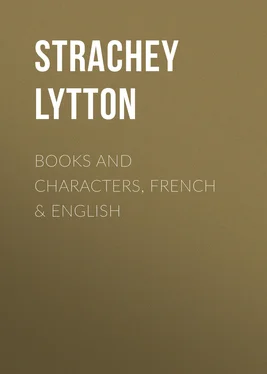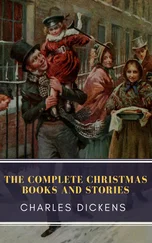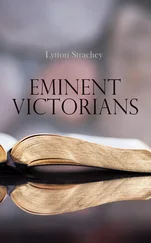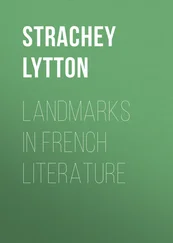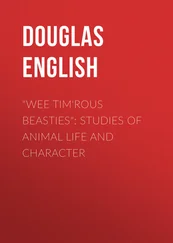Lytton Strachey - Books and Characters, French & English
Здесь есть возможность читать онлайн «Lytton Strachey - Books and Characters, French & English» — ознакомительный отрывок электронной книги совершенно бесплатно, а после прочтения отрывка купить полную версию. В некоторых случаях можно слушать аудио, скачать через торрент в формате fb2 и присутствует краткое содержание. Жанр: Биографии и Мемуары, Языкознание, foreign_antique, на английском языке. Описание произведения, (предисловие) а так же отзывы посетителей доступны на портале библиотеки ЛибКат.
- Название:Books and Characters, French & English
- Автор:
- Жанр:
- Год:неизвестен
- ISBN:нет данных
- Рейтинг книги:3 / 5. Голосов: 1
-
Избранное:Добавить в избранное
- Отзывы:
-
Ваша оценка:
- 60
- 1
- 2
- 3
- 4
- 5
Books and Characters, French & English: краткое содержание, описание и аннотация
Предлагаем к чтению аннотацию, описание, краткое содержание или предисловие (зависит от того, что написал сам автор книги «Books and Characters, French & English»). Если вы не нашли необходимую информацию о книге — напишите в комментариях, мы постараемся отыскать её.
Books and Characters, French & English — читать онлайн ознакомительный отрывок
Ниже представлен текст книги, разбитый по страницам. Система сохранения места последней прочитанной страницы, позволяет с удобством читать онлайн бесплатно книгу «Books and Characters, French & English», без необходимости каждый раз заново искать на чём Вы остановились. Поставьте закладку, и сможете в любой момент перейти на страницу, на которой закончили чтение.
Интервал:
Закладка:
We are all bastards;
And that most venerable man, which I
Did call my father, was I know not where
When I was stamped. Some coiner with his tools
Made me a counterfeit; yet my mother seemed
The Dian of that time; so doth my wife
The nonpareil of this—O vengeance, vengeance!
Me of my lawful pleasure she restrained
And prayed me, oft, forbearance; did it with
A pudency so rosy, the sweet view on't
Might well have warmed old Saturn, that I thought her
As chaste as unsunned snow—O, all the devils!—
This yellow Iachimo, in an hour,—was't not?
Or less,—at first: perchance he spoke not; but,
Like a full-acorned boar, a German one,
Cried, oh! and mounted: found no opposition
But what he looked for should oppose, and she
Should from encounter guard.
And Leontes, in a similar situation, expresses himself in images no less to the point.
There have been,
Or I am much deceived, cuckolds ere now,
And many a man there is, even at this present,
Now, while I speak this, holds his wife by the arm,
That little thinks she has been sluiced in's absence
And his pond fished by his next neighbour, by
Sir Smile, his neighbour: nay, there's comfort in't,
Whiles other men have gates, and those gates opened,
As mine, against their will. Should all despair
That have revolted wives, the tenth of mankind
Would hang themselves. Physic for't there's none;
It is a bawdy planet, that will strike
Where 'tis predominant; and 'tis powerful, think it,
From east, west, north and south: be it concluded,
No barricade for a belly, know't;
It will let in and out the enemy
With bag and baggage: many thousand on's
Have the disease, and feel't not.
It is really a little difficult, in the face of such passages, to agree with Professor Dowden's dictum: 'In these latest plays the beautiful pathetic light is always present.'
But how has it happened that the judgment of so many critics has been so completely led astray? Charm and gravity, and even serenity, are to be found in many other plays of Shakespeare. Ophelia is charming, Brutus is grave, Cordelia is serene; are we then to suppose that Hamlet , and Julius Caesar , and King Lear give expression to the same mood of high tranquillity which is betrayed by Cymbeline, The Tempest , and The Winter's Tale ? 'Certainly not,' reply the orthodox writers, 'for you must distinguish. The plays of the last period are not tragedies; they all end happily'—'in scenes,' says Sir I. Gollancz, 'of forgiveness, reconciliation, and peace.' Virtue, in fact, is not only virtuous, it is triumphant; what would you more?
But to this it may be retorted, that, in the case of one of Shakespeare's plays, even the final vision of virtue and beauty triumphant over ugliness and vice fails to dispel a total effect of horror and of gloom. For, in Measure for Measure Isabella is no whit less pure and lovely than any Perdita or Miranda, and her success is as complete; yet who would venture to deny that the atmosphere of Measure for Measure was more nearly one of despair than of serenity? What is it, then, that makes the difference? Why should a happy ending seem in one case futile, and in another satisfactory? Why does it sometimes matter to us a great deal, and sometimes not at all, whether virtue is rewarded or not?
The reason, in this case, is not far to seek. Measure for Measure is, like nearly every play of Shakespeare's before Coriolanus , essentially realistic. The characters are real men and women; and what happens to them upon the stage has all the effect of what happens to real men and women in actual life. Their goodness appears to be real goodness, their wickedness real wickedness; and, if their sufferings are terrible enough, we regret the fact, even though in the end they triumph, just as we regret the real sufferings of our friends. But, in the plays of the final period, all this has changed; we are no longer in the real world, but in a world of enchantment, of mystery, of wonder, a world of shifting visions, a world of hopeless anachronisms, a world in which anything may happen next. The pretences of reality are indeed usually preserved, but only the pretences. Cymbeline is supposed to be the king of a real Britain, and the real Augustus is supposed to demand tribute of him; but these are the reasons which his queen, in solemn audience with the Roman ambassador, urges to induce her husband to declare for war:
Remember, sir, my liege,
The Kings your ancestors, together with
The natural bravery of your isle, which stands
As Neptune's park, ribbed and paled in
With rocks unscaleable and roaring waters,
With sands that will not bear your enemies' boats,
But suck them up to the topmast. A kind of conquest
Caesar made here; but made not here his brag
Of 'Came, and saw, and overcame'; with shame—
The first that ever touched him—he was carried
From off our coast, twice beaten; and his shipping—
Poor ignorant baubles!—on our terrible seas,
Like egg-shells moved upon the surges, crack'd
As easily 'gainst our rocks; for joy whereof
The famed Cassibelan, who was once at point—
O giglot fortune!—to master Caesar's sword,
Made Lud's town with rejoicing fires bright
And Britons strut with courage.
It comes with something of a shock to remember that this medley of poetry, bombast, and myth will eventually reach the ears of no other person than the Octavius of Antony and Cleopatra ; and the contrast is the more remarkable when one recalls the brilliant scene of negotiation and diplomacy in the latter play, which passes between Octavius, Maecenas, and Agrippa on the one side, and Antony and Enobarbus on the other, and results in the reconciliation of the rivals and the marriage of Antony and Octavia.
Thus strangely remote is the world of Shakespeare's latest period; and it is peopled, this universe of his invention, with beings equally unreal, with creatures either more or less than human, with fortunate princes and wicked step-mothers, with goblins and spirits, with lost princesses and insufferable kings. And of course, in this sort of fairy land, it is an essential condition that everything shall end well; the prince and princess are bound to marry and live happily ever afterwards, or the whole story is unnecessary and absurd; and the villains and the goblins must naturally repent and be forgiven. But it is clear that such happy endings, such conventional closes to fantastic tales, cannot be taken as evidences of serene tranquillity on the part of their maker; they merely show that he knew, as well as anyone else, how such stories ought to end.
Yet there can be no doubt that it is this combination of charming heroines and happy endings which has blinded the eyes of modern critics to everything else. Iachimo, and Leontes, and even Caliban, are to be left out of account, as if, because in the end they repent or are forgiven, words need not be wasted on such reconciled and harmonious fiends. It is true they are grotesque; it is true that such personages never could have lived; but who, one would like to know, has ever met Miranda, or become acquainted with Prince Florizel of Bohemia? In this land of faery, is it right to neglect the goblins? In this world of dreams, are we justified in ignoring the nightmares? Is it fair to say that Shakespeare was in 'a gentle, lofty spirit, a peaceful, tranquil mood,' when he was creating the Queen in Cymbeline , or writing the first two acts of The Winter's Tale ?
Attention has never been sufficiently drawn to one other characteristic of these plays, though it is touched upon both by Professor Dowden and Dr. Brandes—the singular carelessness with which great parts of them were obviously written. Could anything drag more wretchedly than the dénouement of Cymbeline ? And with what perversity is the great pastoral scene in The Winter's Tale interspersed with long-winded intrigues, and disguises, and homilies! For these blemishes are unlike the blemishes which enrich rather than lessen the beauty of the earlier plays; they are not, like them, interesting or delightful in themselves; they are usually merely necessary to explain the action, and they are sometimes purely irrelevant. One is, it cannot be denied, often bored, and occasionally irritated, by Polixenes and Camillo and Sebastian and Gonzalo and Belarius; these personages have not even the life of ghosts; they are hardly more than speaking names, that give patient utterance to involution upon involution. What a contrast to the minor characters of Shakespeare's earlier works!
Читать дальшеИнтервал:
Закладка:
Похожие книги на «Books and Characters, French & English»
Представляем Вашему вниманию похожие книги на «Books and Characters, French & English» списком для выбора. Мы отобрали схожую по названию и смыслу литературу в надежде предоставить читателям больше вариантов отыскать новые, интересные, ещё непрочитанные произведения.
Обсуждение, отзывы о книге «Books and Characters, French & English» и просто собственные мнения читателей. Оставьте ваши комментарии, напишите, что Вы думаете о произведении, его смысле или главных героях. Укажите что конкретно понравилось, а что нет, и почему Вы так считаете.
